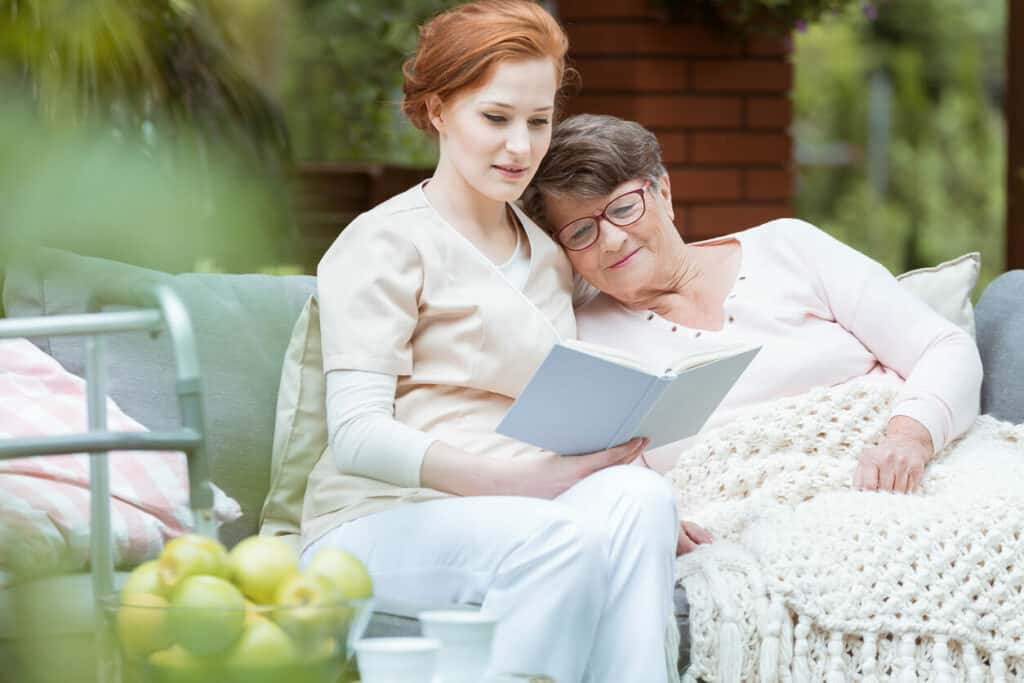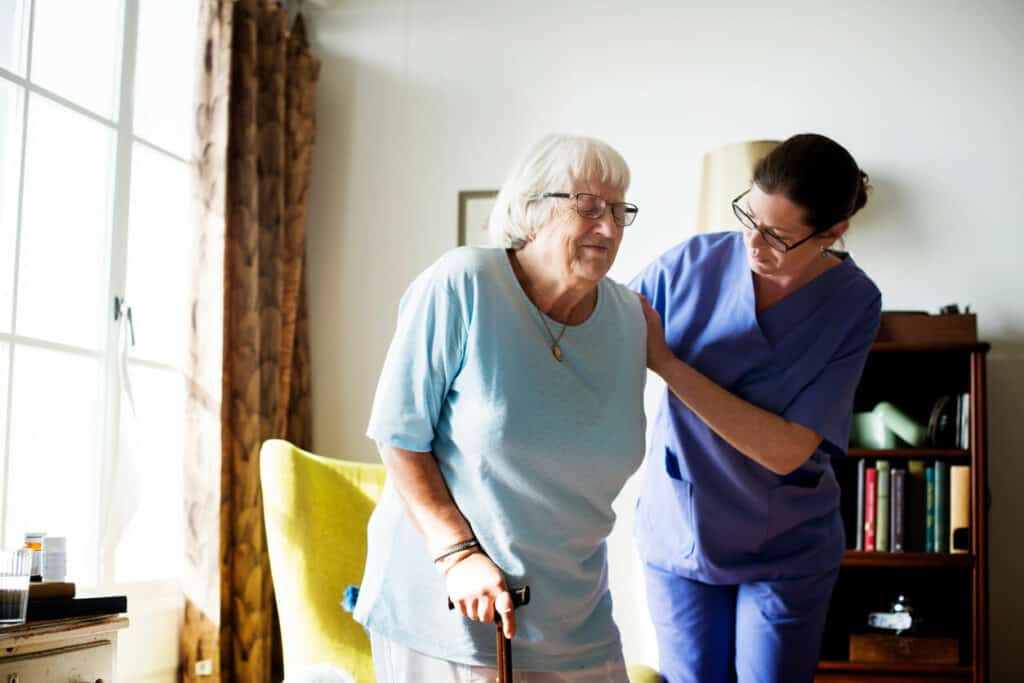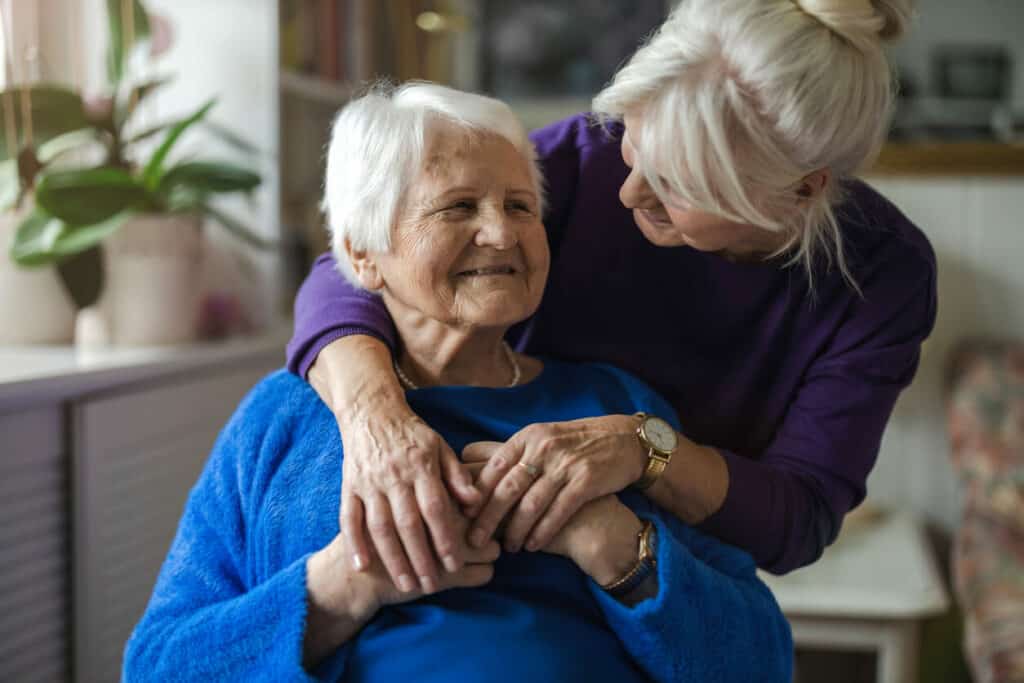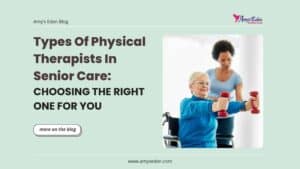
8 Memory Care Requirements That You Need to Consider Before Committing Your Loved One
Have you noticed a decline in cognitive and memory abilities as your loved one ages? In some individuals, this decline can be more pronounced, resulting
If you are the primary caregiver for your aging, sick or disabled loved one, you might have wished for a break.
You wake up every morning with a thousand and one things to do, from preparing your loved one’s breakfast to managing their medications, rushing out for their doctor’s appointment, then coming back in time to prepare lunch.
But the day isn’t over yet. You still have to do some laundry, prepare dinner, and squeeze out ample time to play puzzles with your loved one or accompany them for a walk.
Before you know it, it’s nighttime, and you’re exhausted. You wish you could get enough rest to relax.
If this is you, you’re not alone. You need a carer respite service that gives you a much-needed break to recharge your caregiver batteries. Amy’s Eden provides such services, so family caregivers can step away from their caring responsibilities and take a break.
Did you know that 1 in 6 Americans (over 42 million adults) provides unpaid care to someone 50 or older? This is usually for their parent, parent-in-law, grandparents, or adult child.
Due to the ever-growing demand for care, the number of unpaid caregivers is rising worldwide. In the UK, informal caregivers, more often called unpaid carers, increased from 5.7 million in 2021 to approximately 10.6 million in 2022.
Being a caregiver is fulfilling — there is joy and fulfillment in caring for those who can’t care for themselves.
But, it can be hard work and leave the caregiver physically and emotionally drained. This is where respite care comes in.

A carer respite service provides a family caregiver a temporary break from their caregiving responsibilities. It gives you that much-needed downtime to unwind, practice self-care, hang out with friends, or go on a vacation, while a professional caregiver takes care of your loved one.
How long respite care service you require depends on your and your loved one’s needs. You can find support services for days to a couple of weeks.
Twenty-one percent of family caregivers for older adults reported that caregiving made their health worse.
Most family caregivers provide round-the-clock care for their loved ones while also juggling activities in their personal life, such as caring for other family members or children, running a business, or going to work. Combining all these can cause stress and caregiver burnout after some time.
Caregiver burnout is a state of mental, physical, and emotional exhaustion. It makes you feel anxious, depressed, or resent your loved one.
No caregiver should be in this state; therefore, getting senior respite care services is essential.
Respite care has many benefits to the main caregivers, such as:
Many caregivers experience feelings of guilt when they think of respite care. It shouldn’t be the case. You’re not selfish for taking time to care for your well-being. So, it’s okay to admit you need help and not wait until you’re experiencing burnout before you get respite care.
Carer respite service takes on many forms. Choose what works best for you and your loved one.
Professional caregivers or volunteers come to your loved one’s home to provide temporary care. In-home care services might include help with the following:

Respite home care can be provided regularly or occasionally, depending on your needs. Your loved one receives personalized one-on-one care from the comfort of their home.
There are different types of caregivers, and you can receive respite care from these professionals.
Choosing the ideal caregiver depends on your loved one’s personal and medical care needs.
Some situations may require your loved one to receive respite care outside the home. You can consider these options.
They are great for less independent and lonely older people. Adult daycare provides up to 8 hours of care and offers planned activities to keep your loved one engaged.

Visit different centers and inquire before you move forward with one. Ask about the staff, quality of care, and whether your chosen center has a license.
You can help your loved one get accustomed to the environment by staying in the center for a few minutes after you drop them off.
Nursing homes, group homes, hospitals, and other specialized centers provide older adults with planned or emergency respite care. It can span from a day to several days. However, most medical insurance in the U.S. does not cover overnight respite care.
If you’re looking for respite care, these non-profit and government organizations can help make your search easier.
You can search using keywords on Google to locate respite care agencies or centers near your area. Use keywords such as:
Be sure to read reviews and ask questions before moving forward with any respite care agency or center.
If you live around Northern Nevada, you can worry less about searching for a reliable respite care provider. Amy’s Eden can provide care for your loved one while you give yourself a break to rejuvenate. Find a respite caregiver now.
The cost of respite care will depend on the provider, the type of service needed, the duration, and where the caregiver delivers the service — in-home or out-of-home.

Funding respite care out-of-pocket may be challenging. Below are other ways to pay for or cover part of the care cost.
Original Medicare or Medicare Part A covers most of the cost of respite care if your loved one is in hospice. It’s covered occasionally but shouldn’t last over 5 days in a row.
However, Medical Advantage (MA) may cover some costs for respite. For instance, a minimum of 3 days recovery stay in a short-term nursing facility or in-home care requested by a doctor under certain circumstances.
Whether Medicaid can cover respite care or how much it covers depends on each state. Check your state’s regulations and see if it includes respite care coverage.
If your loved one qualifies for the Programs of All-inclusive Care for the Elderly (PACE), your family may receive support and assistance. Also, check out the Home and Community-Based Care Services program, as some offer waivers for respite care.
If your parent or spouse is eligible and enrolled in the VA healthcare system, this program can provide respite care for your loved one as part of its mission to promote the health and well-being of family caregivers.
Caregiver Support Program (CSP) teams are available at different VA medical centers in all states. You can use this CSP Team Locator to find the one closest to you.
If your loved one has long-term insurance, contact their provider and find out if they cover respite care.
The resources listed below can help you find benefits or programs that offer respite care assistance.
Sometimes, you may also need to pay for respite care out-of-pocket or using tax credits.
Your loved one is used to you taking care of them and may feel hesitant about a stranger’s care or develop feelings that they have become a burden to you if you need to take a break. It’s best to talk with them to allay their fears, no matter how difficult.

Here are some tips that can help.
You may not have to opt for paid respite services if you have families or friends that will care for your loved one during your short break. If you’re unsure of how to approach them or get them involved, here are some tips to get you started.
Respite time is an opportunity for you to take a break from the stresses of caregiving, find relief, and rejuvenate. Keep the following in mind to ensure a fulfilling experience during each respite period.

Don’t wait until you are burnt out or extremely overwhelmed before you seek respite care. Have a regular respite schedule and stick to it.
Think carefully about what you’d do during your break and what activities would refresh your spirit. It could be taking a brief vacation, reconnecting with friends, or engaging in your favorite hobby. Whatever you do, do what makes you happy and helps you unwind.
Create checklists of what needs to be done while you’re away. Include your loved one’s likes and dislikes and how to handle difficult situations. It will help the respite caregiver care for your loved one just as you would.
You should have a backup plan in place in case something unexpected happens. For example, a family member who is supposed to provide respite had a last-minute emergency, or the respite care agency couldn’t send a caregiver.
Always have a list of alternative home care providers and resources so unanticipated situations don’t throw you off balance and ruin the plan.
In-person and online caregiver support groups allow you to meet and connect with others who do what you do and share your experiences and tips on managing stress without compromising your health.

Caregiver groups can provide emotional support like a family would and help you understand that you’re not alone. Some organizations occasionally organize respite camps or retreats for family caregivers, which you can participate in.
It can be tough taking care of your loved one alone. You may feel overwhelmed and stressed catching up with all your caring responsibilities. Respite care gives you that pause you deserve to de-stress and find joy in caregiving again.
You can enlist the help of family members, volunteers, or professional caregivers to provide care for your loved one while you’re on your break.
Amy’s Eden carer respite service allows you to recharge your caregiver batteries while we care for your elderly loved one. We have trained caregivers to provide in-home care or out-of-home respite according to your loved one’s unique health situation and needs. You can focus on self-care during your rest and leave the rest to us.
Contact us today to find a caregiver or learn more about our respite care services.
Get care >

Have you noticed a decline in cognitive and memory abilities as your loved one ages? In some individuals, this decline can be more pronounced, resulting

When we think about healthcare for seniors, we might not think of sports therapists. They usually work with athletes and help them stay fit. However,

Are you considering physical therapy as a career option? Sometimes, you may or may not know what to expect once you become a certified physical

Do you find it harder to move around like you used to? Is chronic pain affecting your daily activities and overall quality of life? Do
